Blink Charging Co. new corporate name: Car Charging Group, Inc. is tapping into the Blink electric vehicle charging network’s market identity by changing its corporate name over to Blink Charging Co. The company had taken over the network after founder ECOtality filed for bankruptcy in 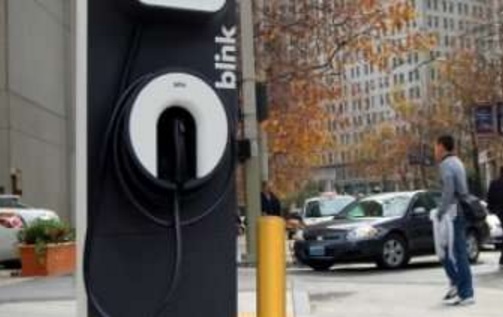 2013. Car Charging Group began operating thousands of Blink charging stations, and the software that manages, monitors, and tracks these stations and stores charging data. Blink Charging Co. also started a 1 for 50 reverse stock split, effective two days ago. After a period of 20 business days from then, the company’s stock symbol will be CCGID and will then revert to CCGI. The company’s website has switched over to www.BlinkCharging.com. “Changing the name of the Company to Blink Charging continues our integration efforts and corporate rebranding, which allows us to unify our identity and illustrates the company’s primary products and services,” stated Mike Calise, Blink Charging’s CEO. “The reverse split is also another step in the right direction towards achieving a listing on a national stock exchange and to build additional shareholder value.”
2013. Car Charging Group began operating thousands of Blink charging stations, and the software that manages, monitors, and tracks these stations and stores charging data. Blink Charging Co. also started a 1 for 50 reverse stock split, effective two days ago. After a period of 20 business days from then, the company’s stock symbol will be CCGID and will then revert to CCGI. The company’s website has switched over to www.BlinkCharging.com. “Changing the name of the Company to Blink Charging continues our integration efforts and corporate rebranding, which allows us to unify our identity and illustrates the company’s primary products and services,” stated Mike Calise, Blink Charging’s CEO. “The reverse split is also another step in the right direction towards achieving a listing on a national stock exchange and to build additional shareholder value.”
Bosch offering extended range: Global auto supplier Bosch just released e-axle, a new electric axle combining three powertrain components into one unit – that will bring longer range to electric vehicles and hybrids and more torque and speed to these vehicles – and to compact cars, SUVs, and pickups. It’s capable of delivering between 50 and 300 kilowatts. Torque at the axle can cover a range of about 1,000 to 6,000 Newton meters (737 to 4,425 foot-pounds). EVs will be able to travel further on each charge, and they won’t have to draw more power from the battery with the new e-axle system in place. It’s being tested now with a few Bosch customers, and the supplier company says it will go into mass production starting in 2019. The German supplier says it has already provided components to over 500,000 hybrids and EVs out on roads.
Lift spreading across country: Ride-hailing company Lyft is making a big move in its U.S. presence, expanding from eight states up to 40. The Uber competitor has been able to see growth in riders and revenue and recent years, and can now tap into chaos that the global ride-hailing giant entered into earlier this year. Lyft has been able to bring over a lot of customers and drivers from Lyft. 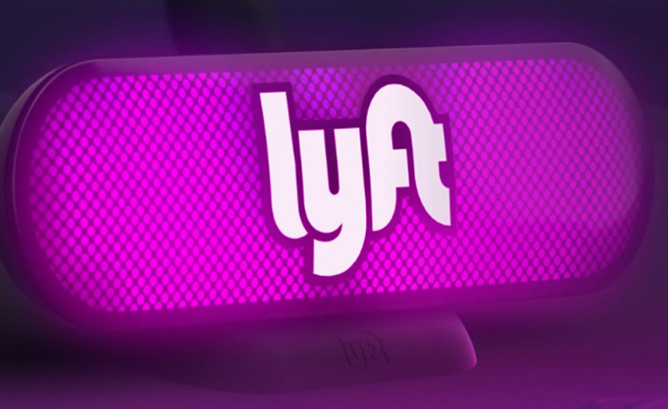 An upgraded smartphone app has helped, along with a new marketing campaign that’s helping Lyft grow from serving 160 more cities for a total of about 350. Lyft is an ideal situation, with its General Motors partnership and recent deals with other companies on autonomous vehicle test projects. Uber’s excessive market valuation and ability to raise about $14 billion in private equity since its inception is causing a huge shakeup as investors want to see transparent, professional management of the company. Uber this week hired Expedia CEO Dara Khosrowshahi to take the place of ousted and controversial founder Travis Kalanick. The new CEO is also known for being outspoken, and is expected to bring the company forward to an initial public offering within 18 to 36 months. Lyft co-founders Logan Green and John Zimmer work on keeping the company simple and direct. They say they haven’t done beyond asking employees and drivers to make sure passengers are treated like guests at a fine hotel.
An upgraded smartphone app has helped, along with a new marketing campaign that’s helping Lyft grow from serving 160 more cities for a total of about 350. Lyft is an ideal situation, with its General Motors partnership and recent deals with other companies on autonomous vehicle test projects. Uber’s excessive market valuation and ability to raise about $14 billion in private equity since its inception is causing a huge shakeup as investors want to see transparent, professional management of the company. Uber this week hired Expedia CEO Dara Khosrowshahi to take the place of ousted and controversial founder Travis Kalanick. The new CEO is also known for being outspoken, and is expected to bring the company forward to an initial public offering within 18 to 36 months. Lyft co-founders Logan Green and John Zimmer work on keeping the company simple and direct. They say they haven’t done beyond asking employees and drivers to make sure passengers are treated like guests at a fine hotel.

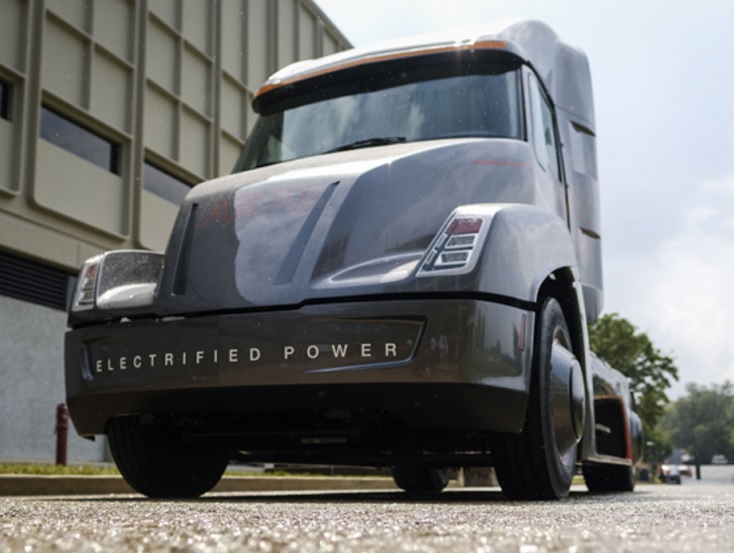 truck will have a 44,000-lb. maximum payload and about 100 miles of range. That beats Tesla’s announcement, which takes place next month and is expected to focus on a 200-300 mile range electric semi truck. Named AEOS after a four-winged horse-driven chariot from Greek mythology, the Cummins electric truck (built by Roush) follows an announcement in June that the company will bring out an electric bus by 2019. Cummins is looking for vehicle manufacturers to work with and large fleets interested in buying them. For now, the electric heavy-duty truck is in the concept phase. The company is well known by fleets for its natural gas truck engines.
truck will have a 44,000-lb. maximum payload and about 100 miles of range. That beats Tesla’s announcement, which takes place next month and is expected to focus on a 200-300 mile range electric semi truck. Named AEOS after a four-winged horse-driven chariot from Greek mythology, the Cummins electric truck (built by Roush) follows an announcement in June that the company will bring out an electric bus by 2019. Cummins is looking for vehicle manufacturers to work with and large fleets interested in buying them. For now, the electric heavy-duty truck is in the concept phase. The company is well known by fleets for its natural gas truck engines.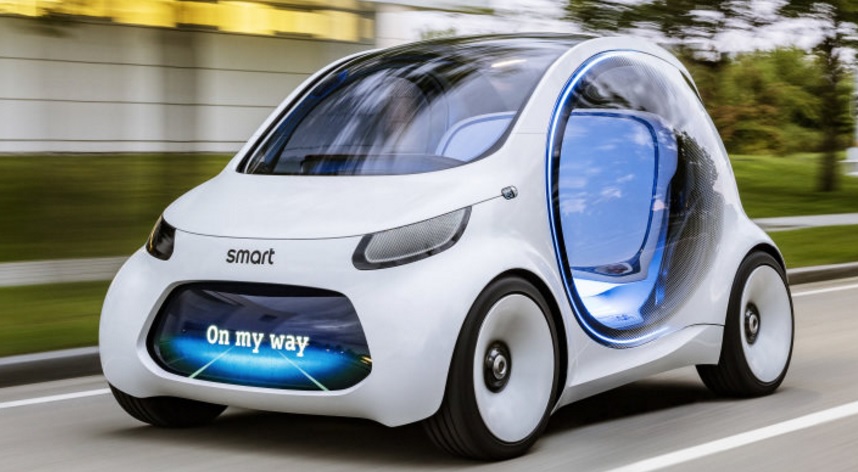 tapping into the company’s CASE philosophy –
tapping into the company’s CASE philosophy – 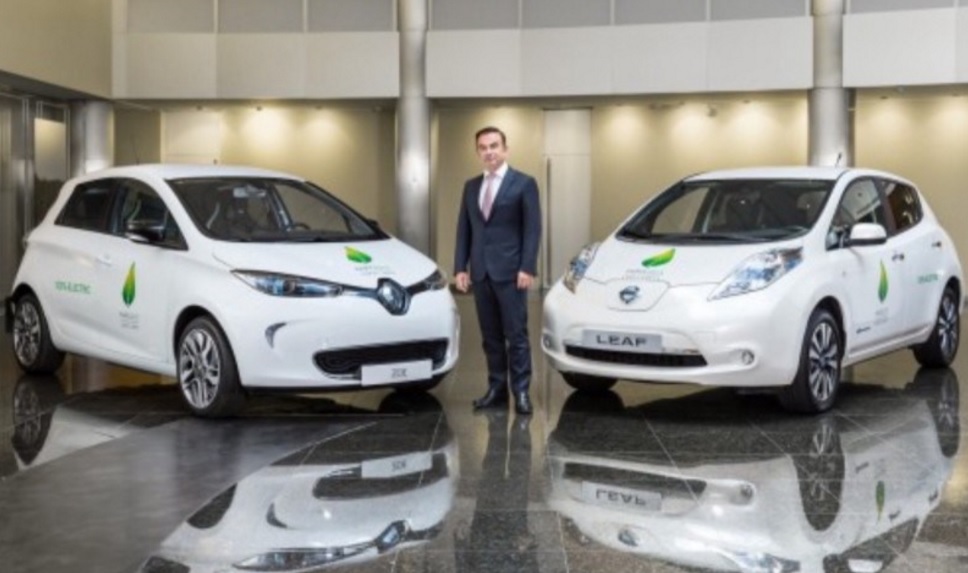 by 2019 through eGT New Energy Automotive Co., Ltd., the new company. The three companies have been in alliance for years with a shared factory already in place. It will tie into CEO Carlos Ghohn strategy to maximize economies of scale and become more EV competitive, along with Donfeng’s mission to bring “light, electric, intelligent, interconnected and shared” vehicles to the new energy vehicle market. China is in the process of becoming stricter on subsidies and watching out for another cheating scandal. The government is expected to soon announce a zero emission vehicle mandate similar to California’s. Whatever the government requires, automakers are not backing off China’s booming EV market.
by 2019 through eGT New Energy Automotive Co., Ltd., the new company. The three companies have been in alliance for years with a shared factory already in place. It will tie into CEO Carlos Ghohn strategy to maximize economies of scale and become more EV competitive, along with Donfeng’s mission to bring “light, electric, intelligent, interconnected and shared” vehicles to the new energy vehicle market. China is in the process of becoming stricter on subsidies and watching out for another cheating scandal. The government is expected to soon announce a zero emission vehicle mandate similar to California’s. Whatever the government requires, automakers are not backing off China’s booming EV market.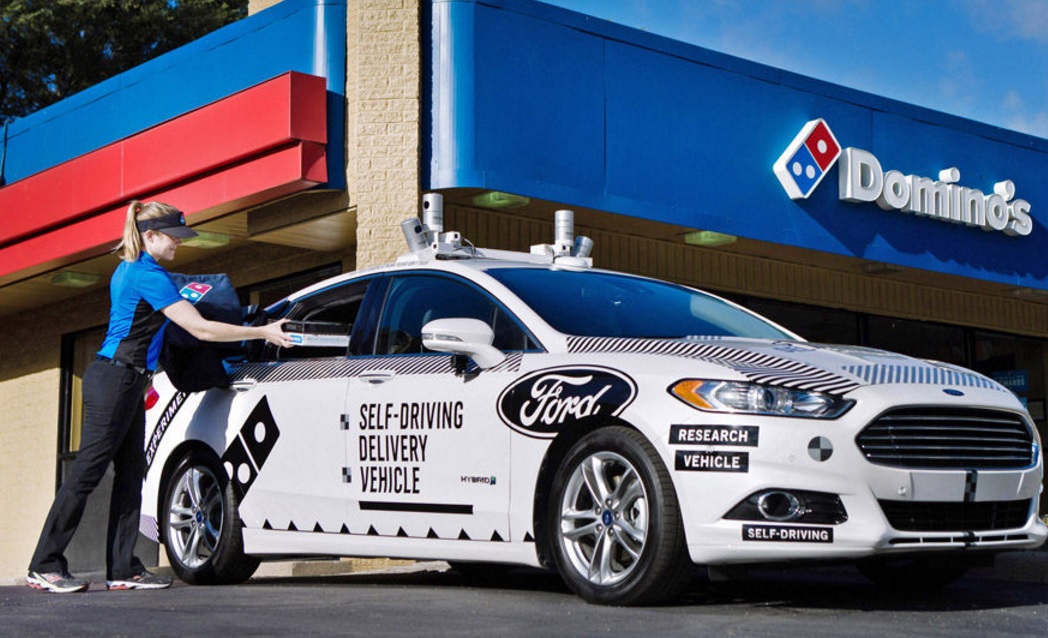 a pizza through a self-driving vehicle. Over the next few weeks, customers in Ann Arbor, Mich., will have the opportunity to receive their order from a Ford Fusion Hybrid Autonomous Research Vehicle. It will be manually-driven by a Ford safety engineer and staffed with researchers. Ford plans to begin producing self-driving vehicles in 2021 and will tap into the data from this test project.
a pizza through a self-driving vehicle. Over the next few weeks, customers in Ann Arbor, Mich., will have the opportunity to receive their order from a Ford Fusion Hybrid Autonomous Research Vehicle. It will be manually-driven by a Ford safety engineer and staffed with researchers. Ford plans to begin producing self-driving vehicles in 2021 and will tap into the data from this test project.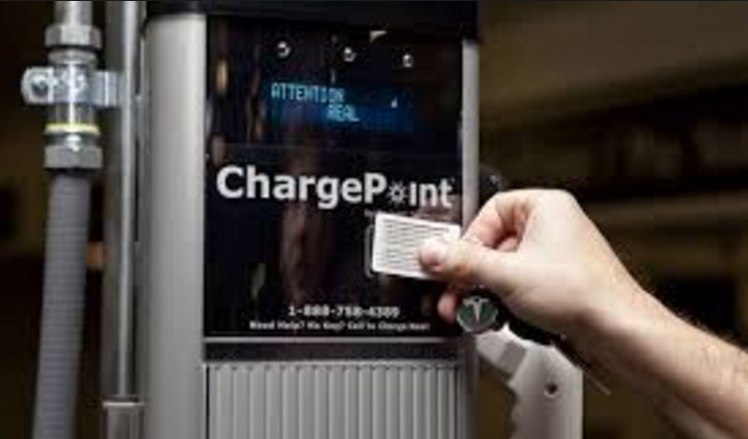 ChargePoint, operator of one of the world’s largest charging station networks for electric cars, joins other players in the game including utilities, engineering groups, automakers, and startups seeking to establish strong footing. BMW, Daimler, and Siemens already have a strong presence in Europe as demand continues to increase – and they see ChargePoint as an option to expand their networks. The charging company has so far raised about $300 million in funds, with Daimler and Siemens joining up this year. BMW first supplied funds in 2012. The company also operates about 40,000 charging spots in the U.S. and Mexico.
ChargePoint, operator of one of the world’s largest charging station networks for electric cars, joins other players in the game including utilities, engineering groups, automakers, and startups seeking to establish strong footing. BMW, Daimler, and Siemens already have a strong presence in Europe as demand continues to increase – and they see ChargePoint as an option to expand their networks. The charging company has so far raised about $300 million in funds, with Daimler and Siemens joining up this year. BMW first supplied funds in 2012. The company also operates about 40,000 charging spots in the U.S. and Mexico. leaving in June. Kalanick had been overseeing the company as it eventually reached $70 billion in estimated market valuation until a series of controversies took over this year – driving investors to shake up Uber management. Khosrowshahi has been an outspoken critic of the Trump administration’s immigration policy, which was another heated issue for Uber earlier this year. His family had immigrated to the U.S. during the Iranian revolution. Expedia, along with Amazon, became one of two technology companies to contribute declarations to a lawsuit filed by Washington State’s attorney general objecting to the travel ban executive order. That had focused on seven predominantly Muslim countries. Other finalists for the Uber CEO position include Jeffrey Immelt, the former chief of General Electric, and Meg Whitman, the chief of Hewlett Packard Enterprise, the sources said.
leaving in June. Kalanick had been overseeing the company as it eventually reached $70 billion in estimated market valuation until a series of controversies took over this year – driving investors to shake up Uber management. Khosrowshahi has been an outspoken critic of the Trump administration’s immigration policy, which was another heated issue for Uber earlier this year. His family had immigrated to the U.S. during the Iranian revolution. Expedia, along with Amazon, became one of two technology companies to contribute declarations to a lawsuit filed by Washington State’s attorney general objecting to the travel ban executive order. That had focused on seven predominantly Muslim countries. Other finalists for the Uber CEO position include Jeffrey Immelt, the former chief of General Electric, and Meg Whitman, the chief of Hewlett Packard Enterprise, the sources said.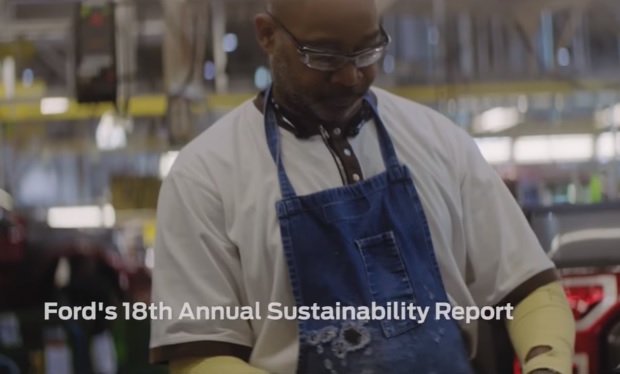 drinkable water in manufacturing. Since 2000, Ford has cut water use by more than 61 percent. It’s partnership with Jose Cuervo continued using agave plants for sustainable bioplastics being placed in Ford vehicles. Now about 300 vehicle parts come from renewable sources such as soybeans, cotton, wood, flax, jute, and natural rubber. Its aluminum closed-loop recycling system recycles about 20 million pounds of military-grade aluminum alloy per month, enough to build more than 37,000 F-Series truck bodies a month. Ford continues to reduce the footprint of its supply chain with an enhanced Partnership for a Cleaner Environment program that has grown to more than 40 suppliers in 40 countries – up from 25 suppliers in 2015. The automakers zero-waste-to-landfill program has been expanded to a total of 82 Ford facilities around the world, where no waste is sent to landfills. You can read the company’s 18th annual sustainability report to learn more, plus read and watch a video on improving safety and fuel economy, reducing manufacturing carbon dioxide, the company global electrification strategy, and sustainable mobility services.
drinkable water in manufacturing. Since 2000, Ford has cut water use by more than 61 percent. It’s partnership with Jose Cuervo continued using agave plants for sustainable bioplastics being placed in Ford vehicles. Now about 300 vehicle parts come from renewable sources such as soybeans, cotton, wood, flax, jute, and natural rubber. Its aluminum closed-loop recycling system recycles about 20 million pounds of military-grade aluminum alloy per month, enough to build more than 37,000 F-Series truck bodies a month. Ford continues to reduce the footprint of its supply chain with an enhanced Partnership for a Cleaner Environment program that has grown to more than 40 suppliers in 40 countries – up from 25 suppliers in 2015. The automakers zero-waste-to-landfill program has been expanded to a total of 82 Ford facilities around the world, where no waste is sent to landfills. You can read the company’s 18th annual sustainability report to learn more, plus read and watch a video on improving safety and fuel economy, reducing manufacturing carbon dioxide, the company global electrification strategy, and sustainable mobility services.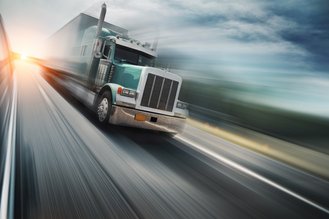 said he met with Tesla earlier this year to discuss what the Tesla Semi truck will be like that CEO Elon Musk announced last year and said would be revealed in September. It will be ideal for short-haul trucking and won’t have anything like the capacity of 1000-miles per fueling big rigs typically seen on U.S. highways. The Tesla Semi could work for companies needing freight hauling from ports to warehouses and other day trips. Tesla will face a series of challenges including ramping up later this year for the Tesla Model 3.
said he met with Tesla earlier this year to discuss what the Tesla Semi truck will be like that CEO Elon Musk announced last year and said would be revealed in September. It will be ideal for short-haul trucking and won’t have anything like the capacity of 1000-miles per fueling big rigs typically seen on U.S. highways. The Tesla Semi could work for companies needing freight hauling from ports to warehouses and other day trips. Tesla will face a series of challenges including ramping up later this year for the Tesla Model 3.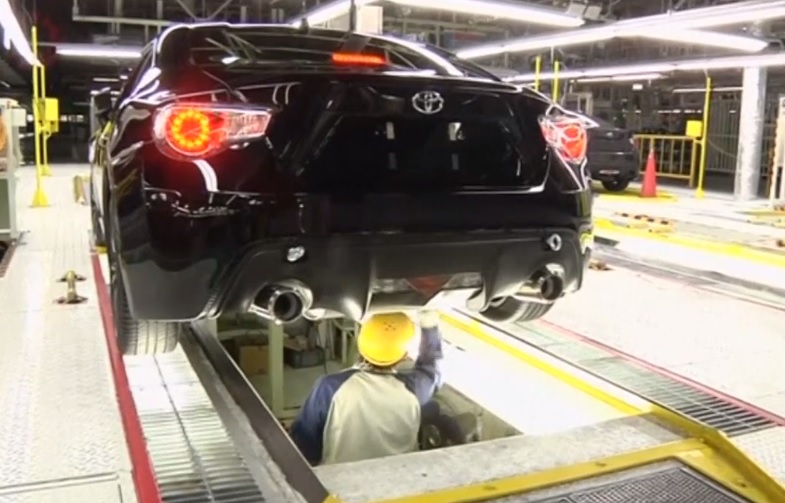 to-30 minutes using fast chargers for a range of just 185 to 250 miles. The first Toyota electric vehicle built on the new platform will come as early as 2022. Toyota is ready to compete with market leaders including Nissan and Tesla as EVs become more widely adopted in the next few years. An in-house unit led by President Akio Toyoda is working on developing and marketing a new lineup of EVs, as the company changes course from its previous path focusing only on hybrids and hydrogen fuel cell vehicles as alternative powertrains. The automaker has also been reported to plan entry into mass production of EVs in China as early as 2019.
to-30 minutes using fast chargers for a range of just 185 to 250 miles. The first Toyota electric vehicle built on the new platform will come as early as 2022. Toyota is ready to compete with market leaders including Nissan and Tesla as EVs become more widely adopted in the next few years. An in-house unit led by President Akio Toyoda is working on developing and marketing a new lineup of EVs, as the company changes course from its previous path focusing only on hybrids and hydrogen fuel cell vehicles as alternative powertrains. The automaker has also been reported to plan entry into mass production of EVs in China as early as 2019.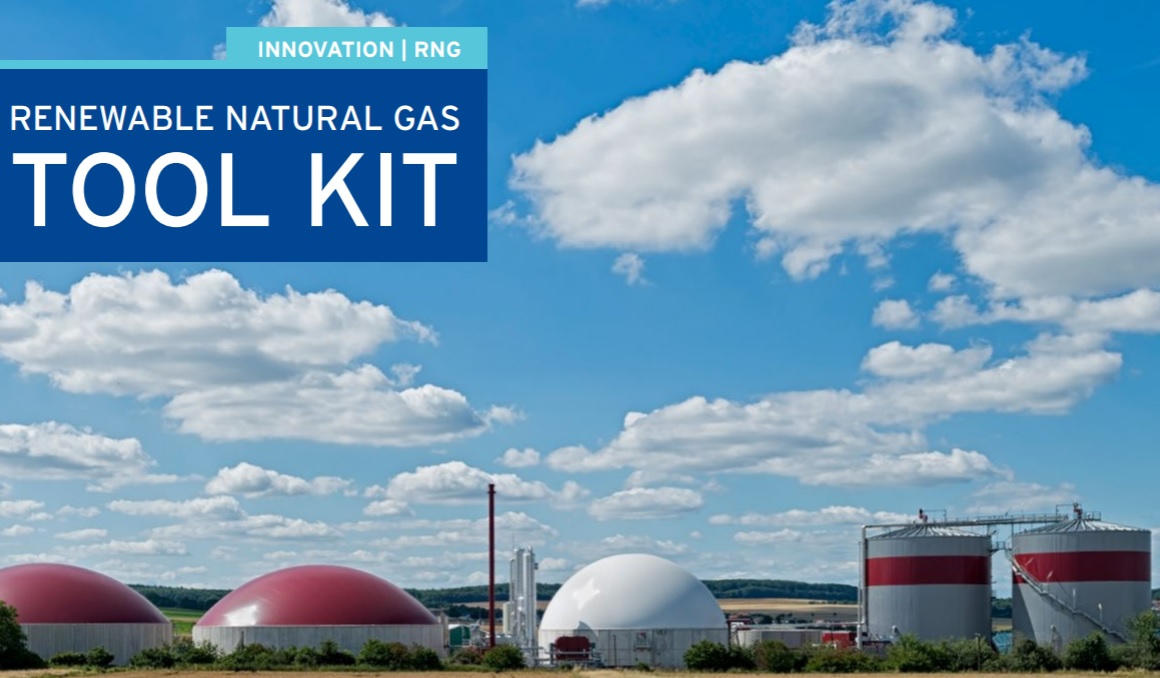 downloadable toolkit has been set up to renewable natural gas (RNG) producers and developers interested in joining up their projects with the SoCalGas pipeline network. In addition, changes have been adopted that will accelerate the interconnection process. SoCalGas reports that about 80% of all methane emissions in California come from the state’s dairy and farm operations, landfills, and wastewater treatment plants. That methane can be harnessed and cleaned to produce RNG for use in transportation as well as in homes and businesses.
downloadable toolkit has been set up to renewable natural gas (RNG) producers and developers interested in joining up their projects with the SoCalGas pipeline network. In addition, changes have been adopted that will accelerate the interconnection process. SoCalGas reports that about 80% of all methane emissions in California come from the state’s dairy and farm operations, landfills, and wastewater treatment plants. That methane can be harnessed and cleaned to produce RNG for use in transportation as well as in homes and businesses. vision that will give the driver a better sense of what’s going on around the electric car. That could tie well into the Pro Pilot Assist features announced earlier. There’s also the e-Pedal, allowing the driver to do everything from one pedal. The Leaf will be coming out first in the U.S. on Sept. 5 with the world launch taking place in Japan the next day.
vision that will give the driver a better sense of what’s going on around the electric car. That could tie well into the Pro Pilot Assist features announced earlier. There’s also the e-Pedal, allowing the driver to do everything from one pedal. The Leaf will be coming out first in the U.S. on Sept. 5 with the world launch taking place in Japan the next day.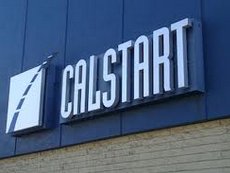 Speakers include: Mary Nichols, Chair, California Air Resources Board; Diarmuid O’Connell, Vice President, Business Development, Tesla; Caroline Choi, Senior Vice President of Regulatory Affairs, Southern California Edison; and Scott Phillippi, Senior Director of Maintenance & Engineering, International Operations, UPS. The hotel block is filling up, so it would be
Speakers include: Mary Nichols, Chair, California Air Resources Board; Diarmuid O’Connell, Vice President, Business Development, Tesla; Caroline Choi, Senior Vice President of Regulatory Affairs, Southern California Edison; and Scott Phillippi, Senior Director of Maintenance & Engineering, International Operations, UPS. The hotel block is filling up, so it would be 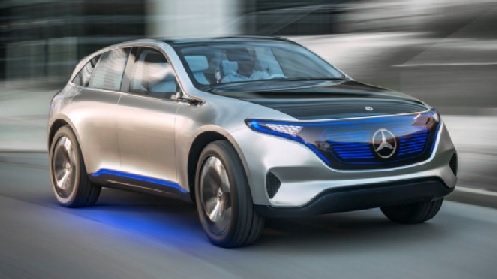 One will be an electric compact car could be the new previously announced EQC sedan that’s slated to start production in 2019. The Mercedes-Benz GLC F-Cell EQ Power will be a fuel cell plug-in hybrid that makes its debut at the car show as a pre-series model. It comes from the EQ Power sub-brand added to its EQ lineup earlier this year. The Mercedes-AMG Project One, a high-performance hypercar, will be getting 1000-plus horsepower and will use Formula 1 hybrid drive technology. There will only be 300 units available. While non-electric, the company will also be showing its first premium pickup truck, the X-Class.
One will be an electric compact car could be the new previously announced EQC sedan that’s slated to start production in 2019. The Mercedes-Benz GLC F-Cell EQ Power will be a fuel cell plug-in hybrid that makes its debut at the car show as a pre-series model. It comes from the EQ Power sub-brand added to its EQ lineup earlier this year. The Mercedes-AMG Project One, a high-performance hypercar, will be getting 1000-plus horsepower and will use Formula 1 hybrid drive technology. There will only be 300 units available. While non-electric, the company will also be showing its first premium pickup truck, the X-Class. will delve into the development, manufacturing, marketing, and servicing of an all-electric vehicle line for the China market. The move will tap into China’s “new energy vehicle” market for plug-in hybrid and all-electric vehicles. The Detroit automakers said that China will have at least six million NEVs sold per year starting in 2025, and that four million of them will be battery-electric vehicles. Zotye Auto sold more than 16,000 electric vehicles in China through July of this year, a 56 percent increase year-over-year.
will delve into the development, manufacturing, marketing, and servicing of an all-electric vehicle line for the China market. The move will tap into China’s “new energy vehicle” market for plug-in hybrid and all-electric vehicles. The Detroit automakers said that China will have at least six million NEVs sold per year starting in 2025, and that four million of them will be battery-electric vehicles. Zotye Auto sold more than 16,000 electric vehicles in China through July of this year, a 56 percent increase year-over-year.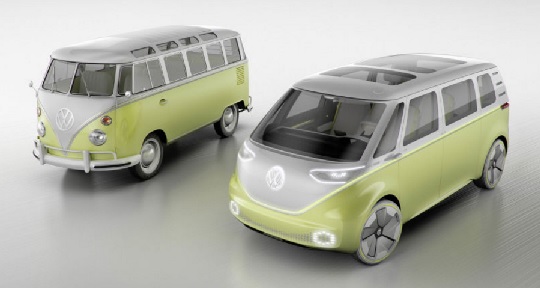 travelers who loved their old VW microbuses, it’s taking the design shape of one of these classic models. Announced Saturday at the Pebble Beach Concours d’Elegance in California, VW CEO Herbert Diess said the demand has been strong since the initial unveiling of the concept earlier this year at the Detroit Auto Show – coming through a lot of letters and emails. “The Microbus has long been part of the California lifestyle. Now we’re bringing it back by reinventing it as an electric vehicle,” he said.
travelers who loved their old VW microbuses, it’s taking the design shape of one of these classic models. Announced Saturday at the Pebble Beach Concours d’Elegance in California, VW CEO Herbert Diess said the demand has been strong since the initial unveiling of the concept earlier this year at the Detroit Auto Show – coming through a lot of letters and emails. “The Microbus has long been part of the California lifestyle. Now we’re bringing it back by reinventing it as an electric vehicle,” he said. leading a lobbying drive to change the way the Environmental Protection Agency views and enforces the biofuels blend mandate. Valero and other oil refiners have taken a costly hit in recent years from the federal Renewable Fuel Standards (RFS) the 10% ethanol blend in gasoline. Valero had to spend about $750 million last year buying RFS credits, according to the company’s securities filings. The company wants the rule to be revised so that the “point of obligation” moves over to retailers and shippers instead of oil refiners. Their coalition has brought in billionaire Carl Icahn, owners of the CVR Energy refiner and who’s served as a special advisor to Trump since his election. Icahn resigned Friday as a Trump advisor after taking a lot of pressure under claims he had a conflict of interests while playing this role.
leading a lobbying drive to change the way the Environmental Protection Agency views and enforces the biofuels blend mandate. Valero and other oil refiners have taken a costly hit in recent years from the federal Renewable Fuel Standards (RFS) the 10% ethanol blend in gasoline. Valero had to spend about $750 million last year buying RFS credits, according to the company’s securities filings. The company wants the rule to be revised so that the “point of obligation” moves over to retailers and shippers instead of oil refiners. Their coalition has brought in billionaire Carl Icahn, owners of the CVR Energy refiner and who’s served as a special advisor to Trump since his election. Icahn resigned Friday as a Trump advisor after taking a lot of pressure under claims he had a conflict of interests while playing this role.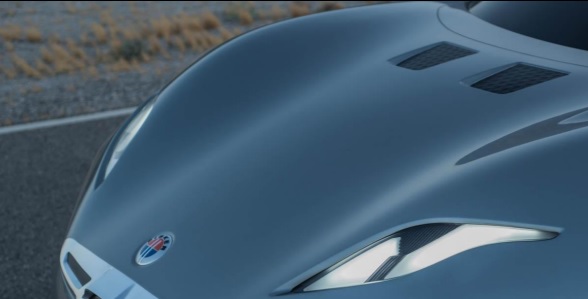 compete directly with the Tesla Model S and Faraday Future FF 91. Technology features include an energy dense battery pack that can be charged in just nine minutes, LiDAR for Level 4 autonomous driving, and a range that Fisker claims will go beyond 400 miles.
compete directly with the Tesla Model S and Faraday Future FF 91. Technology features include an energy dense battery pack that can be charged in just nine minutes, LiDAR for Level 4 autonomous driving, and a range that Fisker claims will go beyond 400 miles.